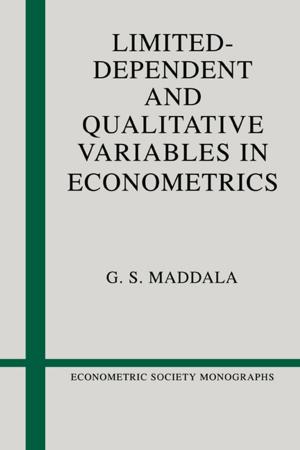Trade and Poverty Reduction in the Asia-Pacific Region
Case Studies and Lessons from Low-income Communities
Nonfiction, Reference & Language, Law, Commercial, Business & Finance| Author: | ISBN: | 9781139179485 | |
| Publisher: | Cambridge University Press | Publication: | December 3, 2009 |
| Imprint: | Cambridge University Press | Language: | English |
| Author: | |
| ISBN: | 9781139179485 |
| Publisher: | Cambridge University Press |
| Publication: | December 3, 2009 |
| Imprint: | Cambridge University Press |
| Language: | English |
This book explores the complex relationship between international trade and poverty reduction through a combination of research papers and contemporary case studies. Written mainly by developing-country authors in consultation with local businesses and communities, the case studies contribute to our understanding of the ways in which low-income communities are dealing with trade as a practical challenge, especially in the Asia-Pacific region where approximately two-thirds of the world's poor live. While making it clear that there is no 'one size fits all' formula, the research and stories highlight a number of necessary preconditions, such as political commitment and cooperation at all levels, if trade is to successfully reduce poverty. Openness to trade, serious commitment to domestic reform, trade-related capacity building, a robust and responsible private sector and access to the markets of developed countries are all identified as powerful tools for building trade-related sustainable development.
This book explores the complex relationship between international trade and poverty reduction through a combination of research papers and contemporary case studies. Written mainly by developing-country authors in consultation with local businesses and communities, the case studies contribute to our understanding of the ways in which low-income communities are dealing with trade as a practical challenge, especially in the Asia-Pacific region where approximately two-thirds of the world's poor live. While making it clear that there is no 'one size fits all' formula, the research and stories highlight a number of necessary preconditions, such as political commitment and cooperation at all levels, if trade is to successfully reduce poverty. Openness to trade, serious commitment to domestic reform, trade-related capacity building, a robust and responsible private sector and access to the markets of developed countries are all identified as powerful tools for building trade-related sustainable development.















